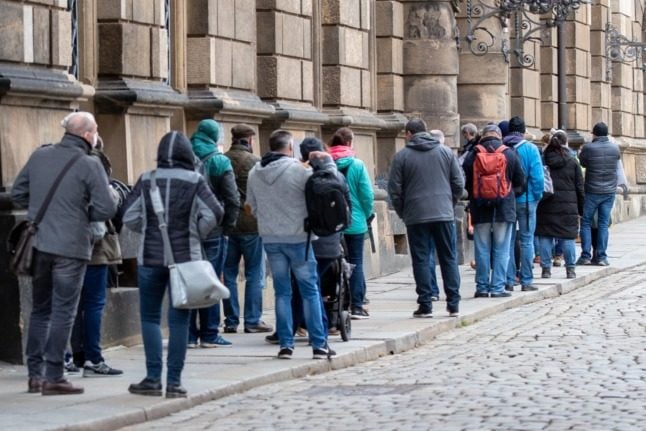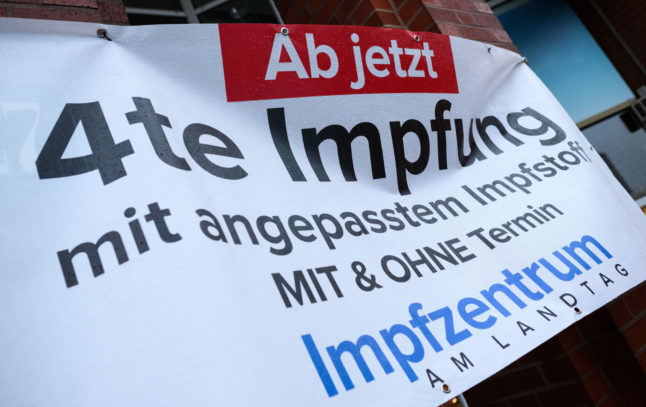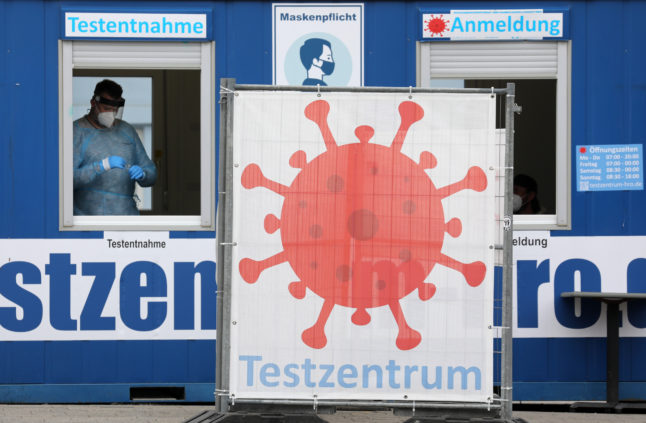The move is due to concerns over the Omicron variant of Covid. Experts say a top-up shot offers more protection against severe illness, and reduces the risk of transmitting the virus.
STIKO previously recommended that people in Germany get a booster shot six months after the last jab (basic immunisation).
READ ALSO: Germany’s vaccine panel plans to recommend Covid boosters for all over 18s
But now the interval can be shortened to three months.
Some German states already moved to change the interval for top-up shots.
The city state of Berlin announced on Monday that it was to allow booster jabs three months (instead of five months) after the second dose.
Last week North Rhine-Westphalia said it would allow booster jabs after just four weeks.
STIKO called for older people and those with a previous illness to be given priority for getting booster shots.
How many people have been vaccinated and boosted?
The vaccination campaign in Germany has been picking up pace in recent weeks.
At least 58.5 million people are now fully vaccinated and 27 million have had boosters, according to the Health Ministry.
More than half of the 60 plus age group – 13.2 million people – have been boosted. Among those aged 18 to 59, the figure is 13.6 million – 30.1 percent of the people in this group.
Just over 70 percent of the total population has been vaccinated twice or received the Johnson & Johnson single dose so far, according to the Health Ministry report.
READ ALSO: Germany to roll out Covid vaccinations for 5-11 year olds
German authorities point out that more people are likely to be vaccinated than official figures show. The Robert Koch Institute believes the actual vaccination rate is up to five percentage points higher than reported.
On average, 1.1 million jabs have been administered per day over the past seven days, according to the figures. On Monday, there were 872,000, the majority of which were booster vaccinations (717,000).
According to the data, the highest number of vaccinations given in one day so far was last Wednesday, with a total of 1.6 million doses.




 Please whitelist us to continue reading.
Please whitelist us to continue reading.
Member comments